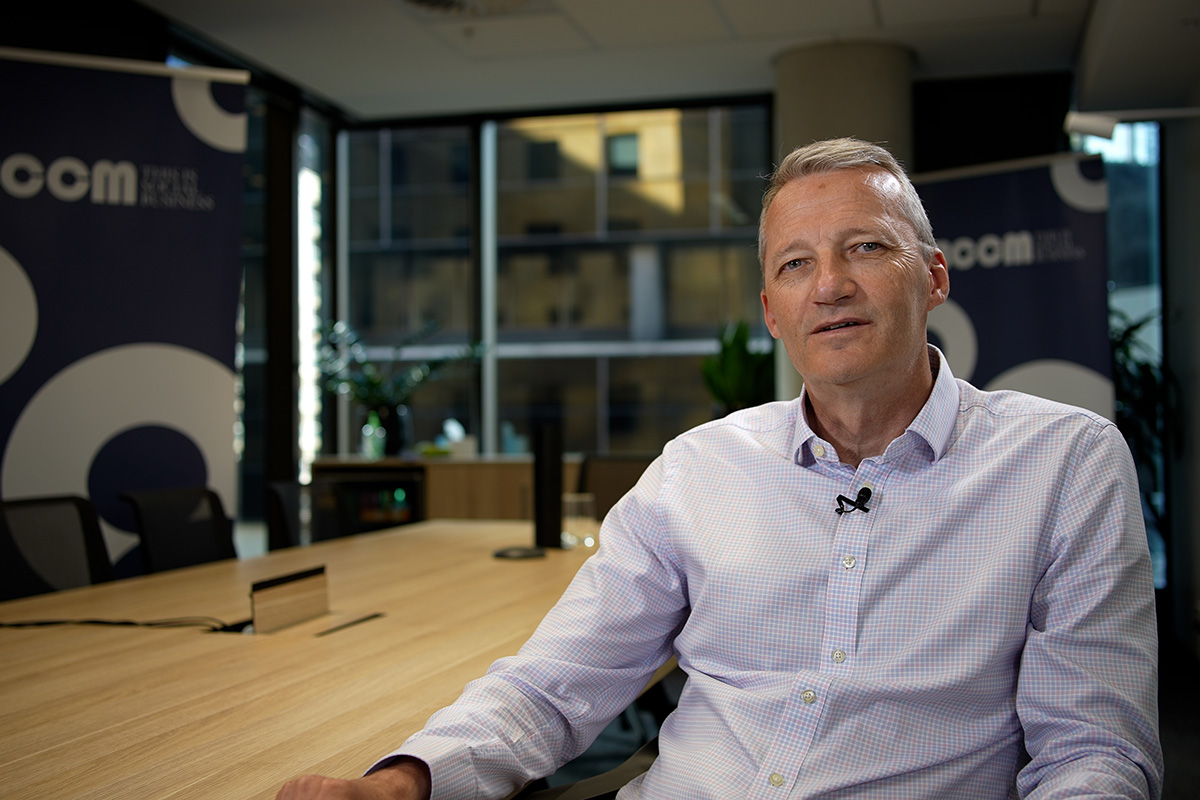Banks worldwide have been steadily closing branches as they move to online and mobile banking.
In the UK, however, Newcastle Building Society has been opening them, and will launch what is thought to be the country’s biggest branch in early 2025.
“We're definitely swimming against the tide, that's for sure, ”concedes Newcastle CEO Andrew Haigh.
He says it’s an “inconvenient truth”, but many people still want face to face banking, despite mass digitisation of services.
“One customer said to me I don't want to come into a branch and talk to a Dalek and by that he meant an ATM. He wants to come in and talk to a human being and that human interaction is the thing that people are valuing.”
Since January 2015, more than 6,000 bank and building society branches have closed in the UK, about 62% of the 2015 banking network.
Newcastle Building Society has 32 branches on high streets across England’s north-east, with a five-story, 8000 sq foot “Monument” branch soon to open in the centre of Newcastle.

About a third of the space in the Monument branch, a novated fashion house, will be available for use by local groups and charities. The 200-year-old building was “like a museum”, a landmark in the heart of Newcastle.
“Being physically present is really important to us,” he says. “So, while big banks are closing branches, we're opening them and we're happy to become the last bank in town and we are celebrated by our customers for that.”
Newcastle Building Society was born in 1980 out of the merger of two longstanding mutuals - the Grainger (founded 1861) and Newcastle Permanent Building Societies (founded 1863).
It has more than 370,000 members and £6.5 billion pounds (almost $13bn) in assets.
Compared to the market average, Newcastle members got $25m more interest on their savings in FY2023. Their variable mortgage rate was 1.25% lower.
The profit motive
To fund these branches, Newcastle has had to be creative.
It has stand-alone branches, but also co-locates banking services in libraries and community centres.
With fintech OneBanx, Newcastle has installed multi-bank kiosks to give local businesses access to cash withdrawal and deposit when their bank has left town.
It also offers digital banking services for other banks and building societies through a wholly owned subsidiary.
“The profit we make in that business comes straight back for the benefit of members, but it also gives us scale. We run over £50 billion of balances for 16 other banks through that business. It gives us much, much bigger scale than we could have on our own.”
There is a firm commitment to continuing to provide passbooks in Newcastle Building Society branches. They may be an anachronism in a digital world, but customers want them.
“Our customers are our principal stakeholders. If customers tell us they want passbooks, then as far as I'm concerned, the challenge to us is, well, how do you make passbooks work?”
Yet he sees “fantastic opportunities” with AI – for routine transactions, in cybersecurity and fraud detection – and has no doubt it will significantly change banking.
“But we're at early stages and it's not the panacea,” he says. “Let's just be thoughtful about where we use AI to the best advantage of the customer, not just the organisation.”

UK promise to double co-ops and mutuals
As part of his election campaign manifesto earlier this year, UK Prime Minister Keir Starmer pledged to double the size of the co-op and mutual sector. It’s a promise the BCCM is monitoring closely and is keen to see replicated in Australia.
Andrew says it’s a big, but realistic, ambition. To work, it will need education, on the benefits of co-ops and mutuals, business schools will need to produce a new generation of entrepreneurs, and it will need capital.
“It’s massively exciting to hear any government talk about doubling the size of the mutual sector,” he said. “Capital will be key … what capital instruments will be available to the existing organisations to enable them to grow and flourish?”
Mutual Value Measurement
Newcastle was the first UK organisation to receive Mutual Value Measurement© (MVM) Accreditation, developed in Australia by Monash University in partnership with the Business Council of Co-operatives and Mutuals.
Pure serendipity, according to Andrew. At a time when Newcastle was grappling with away to measure its value to members and success in the community, Andrew heard Mutuo founder Peter Hunt presenting at a conference in the UK. (Mutuo is a UK-based advocacy group that has worked closely with the BCCM since formation and, latterly, on the expansion of the MVM tool beyond Australian shores).
“Peter presented the framework and that's exactly what we have been looking for,” he said. “It was the answer to a question we were asking ourselves at the time…. how to break down the different ways we add value for customers.”
Andrew’s advice to mutuals is: don’t try to wear the clothes of a shareholder business.
“In a co-operative or in a mutual business where stakeholders are customers, or employees, success can look very different. Understand your purpose. Understand who you're for. Understand what that enables you to do that is different. And then be competing for a different game.”
Discover how Mutual Value Measurement has aided Newcastle Building Society.



